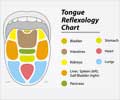Blood lead levels may be lower and tooth decay rate higher among children who do not drink tap water. Drinking tap water may increase tooth decay.

TOP INSIGHT
Blood lead levels may be lower and tooth decay rate higher among children who do not drink tap water.
Anne E. Sanders, PhD, and Gary D. Slade, BDSc, PhD, of the Department of Dental Ecology, University of North Carolina at Chapel Hill, analyzed a nationally representative sample of nearly 16,000 children and adolescents aged two to 19 years who participated in the National Health and Nutrition Examination Survey (NHANES) from 2005 to 2014. More than 12,000 records included data on blood lead level and about 5,600 had dental caries examination data. NHANES is the U.S. benchmark for national surveillance of blood lead levels and is the sole national source of dental examination data.
Following an in-home interview, participants visited a mobile examination center where they donated a blood sample, completed a dietary interview, and received a dental examination. About 15% of the children stated that they did not drink tap water. An elevated blood lead level was defined as having at least three micrograms of lead per deciliter of blood. Tooth decay was defined as the presence of one of more tooth surfaces affected by dental caries as determined by dental examiners using a standardized protocol.
According to the results of this study, children and adolescents who did not drink tap water were more likely than tap water drinkers to have tooth decay, but were less likely to have elevated blood lead levels. Those who drank tap water had significantly higher prevalence of elevated blood lead levels than children who did not drink tap water. Overall, nearly 3% of children and adolescents had elevated blood lead levels and 49.8% had tooth decay. Among American children and adolescents, one in five living below the federal poverty level, one in four African Americans, and one in three Mexican Americans do not drink tap water, vastly exceeding the one in twelve non-Hispanic white children who do not.
"Elevated blood lead levels affect only a small minority of children, but the health consequences are profound and permanent," explained Sanders. "On the other hand, tooth decay affects one in every two children, and its consequences, such as toothache, are immediate and costly to treat."
"Our study draws attention to a critical trade-off for parents: children who drink tap water are more likely to have elevated blood lead levels, yet children who avoid tap water are more likely to have tooth decay," commented Slade. "Community water fluoridation benefits all people, irrespective of their income or ability to obtain routine dental care. Yet we jeopardize this public good when people have any reason to believe their drinking water is unsafe."
 MEDINDIA
MEDINDIA




 Email
Email










